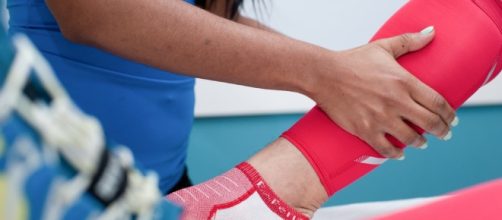It is common to see sports massage therapists at sports events. Sports massage has been believed to be an important modality of improving performance at the elite level. At the basic, it can be defined as the manipulation of soft tissue to benefit a person engaged in regular physical activities. The type, intensity, and speed of massage therapy differ depending on when you give it: whether pre-event, inter-event, post-event or for maintenance during the training program.
Several studies have been conducted to test pre-event sports massage
Published in the North American Journal of sports physical therapy on 3rd February 2008, Jason Brummitt states that only a few studies exist in the literature which investigated the effect of massage on #sports performance.
And most studies have recommended additional studies examining the physiological and psychological effects of sports massage.
Sophie Gwynne, Cardiff School of sport, conducted a study on the effects of pre-event sports massage on psychological mood state and performance. Her participants performed 3 sets of 50-metre sprints with 3 minutes rest between intervals. The results revealed that there were “no significant differences between sprint time scores when receiving massage to not receiving massage.” Also according to her findings, massage had no significant effect on psychological mood. She concluded that the effects of pre-competition massage are still an inconclusive area of research.
Sports massage has been suggested as a strategy to prepare muscles for competition
Despite the fact that only a few studies address the effects of massage on Injury Prevention and psychological readiness, athletes routinely perform massage, before engaging in physical activity, due to its benefits.
Psychological benefits of sports massage: The athlete gains mental confidence that any existing muscle issues are being corrected, encouraging them to participate at the highest level and get good scores. It is relaxing and enables them to focus, and this decreases pre-competition anxiety.
Physiological benefits of sports massage: It improves blood circulation, hence the flow of nutrients to the muscles.
It warms and loosens up the muscular system making them ready for activity: raised muscle temperatures increase tissue elasticity and joint flexibility. This decreases pain, reduces tension and helps in injury prevention. It stimulates lymphatic drainage which reduces inflammation in the body and pain levels. It increases venous return. This results in muscles’ energy levels increasing because as more blood is pumped up, more blood is re-oxygenated and delivered to the muscles.


